- Home
- Vladimir Nabokov
Glory Page 2
Glory Read online
Page 2
If Martin’s grandfather’s family name bloomed in the mountains, the magical origin of his grandmother’s maiden name was a far cry from the various Volkovs (Wolfs), Kunitsyns (Martens) or Belkins (Squirrelsons), and belonged to the fauna of Russian fable. Once upon a time there prowled marvelous beasts in our country. But Sofia found Russian fairy tales clumsy, cruel, and squalid, Russian folksongs inane, and Russian riddles idiotic. She had little faith in Pushkin’s famous nanny, and said that the poet himself had invented her, together with her fairy tales, knitting needles, and heartache. Thus in early childhood Martin failed to become familiar with something that subsequently, through the prismatic wave of memory, might have added an extra enchantment to his life. However, he had no lack of enchantments, and no cause to regret that it was not the Russian knight-errant Ruslan but Ruslan’s occidental brother that had awakened his imagination in childhood. But then what does it matter whence comes the gentle nudge that jars the soul into motion and sets it rolling, doomed never again to stop?
2
On the bright wall above the narrow crib, with its lateral meshes of white cord and the small icon at its head (lacquered saint’s brown face framed in foil, crimson underside plush somewhat eaten by moths or by Martin himself), hung a watercolor depicting a dense forest with a winding path disappearing into its depths. Now in one of the English books that his mother used to read to him (how slowly and mysteriously she would pronounce the words and how wide she would open her eyes when she reached the end of a page, covering it with her small, lightly freckled hand as she asked, “And what do you think happened next?”) there was a story about just such a picture with a path in the woods, right above the bed of a little boy, who, one fine night, just as he was, nightshirt and all, went from his bed into the picture, onto the path that disappeared into the woods. His mother, thought Martin anxiously, might notice the resemblance between the watercolor on the wall and the illustration in the book; she would then become alarmed and, according to his calculations, avert the nocturnal journey by removing the picture. Therefore every time he prayed in bed before going to sleep (first came a short prayer in English: “Gentle Jesus meek and mild, listen to a little child,” and then “Our Father” in the sibilant, and sibylline, Slavonic version), pattering rapidly and trying to get his knees up on the pillow—which his mother considered inadmissible on ascetic grounds—Martin prayed God that she would not notice that tempting path right over his head. When, as a youth, he recalled the past, he would wonder if one night he had not actually hopped from bed to picture, and if this had not been the beginning of the journey, full of joy and anguish, into which his whole life had turned. He seemed to remember the chilly touch of the ground, the green twilight of the forest, the bends of the trail (which the hump of a great root crossed here and there), the tree trunks flashing by as he ran past them barefoot, and the strange dark air, teeming with fabulous possibilities.
Grandmother Edelweiss, née Indrikov, worked diligently at watercolors in her youth, and, as she mixed the blue paint with the yellow on her porcelain palette, she could hardly foresee that in this nascent greenery her grandson would one day wander. The thrill which Martin discovered and which, in various manifestations and blendings, accompanied him throughout his life from that moment on, proved to be precisely the feeling that his mother hoped to develop in him, even though she herself would have been hard put to find a name for it; she just knew that every evening she must feed Martin what she had once been fed by her late governess, old, wise Mrs. Brook, whose son had collected orchids in Borneo, had flown over the Sahara in a balloon, and had died in a Turkish bath when the boiler burst. She would read, and Martin would listen, kneeling on a chair with his elbows propped on the lamplit round table, and it was very hard to stop and lead him to bed, since he would always beg her to read some more. Sometimes she would carry him upstairs to the nursery on her back—this was called “logging.” At bedtime he would be given an English biscuit from a blue-papered tin box. The top ones were of wonderful kinds, coated with sugar; next came ginger and coconut cookies; and on the sad night when he reached the bottom layer he would have to reconcile himself to a third-rate variety, plain and insipid.
Nothing was wasted on Martin—neither the crunchy English cookies, nor the adventures of King Arthur’s knights. What a rapturous moment that was when a youth—perchance a nephew of Sir Tristram’s?—donned for the first time piece by piece his shiny, convex plate armor and rode off to his first single combat! There were also those distant, circular islands at which a damsel gazed from the shore, her garments streaming in the wind and a hooded falcon perched on her wrist. And Sinbad with his red kerchief and the gold ring in his ear; and the sea serpent, its green tire-shaped segments jutting out of the water all the way to the horizon. And the child finding the spot where the end of the rainbow met the ground. And, like an echo of all this, an image somehow related to it, there was the magnificent model of a brown-paneled sleeping car in the window of the Société des Wagons-Lits et des Grands Express Européens on the Nevsky Avenue, where one was walked on a dull frosty day with slight spinners of snow, and had to wear black knit snow pants over one’s stockings and shorts.
3
His mother’s love for Martin was so jealous, so violent, and so intense that it seemed to make the heart hoarse. When her marriage broke up and she began living separately with Martin, he would go on Sundays to visit his father at their former apartment, where he would potter for a long time with pistols and daggers, while his father read the paper impassively, and answered every now and then, without looking up, “Yes, loaded,” or “Yes, poisoned.” On these occasions Sofia could hardly bear to stay at home, tormented by the ridiculous thought that her indolent husband might try something after all, and keep his son with him. Martin, on the other hand, was very affectionate and polite with his father, so as to mitigate the punishment as much as possible; since he believed that his father had been banished for a misdemeanor committed one summer evening, at their country house, when he had done something to the piano that made it emit an absolutely staggering sound, as if someone had stepped on its tail, and the day after had left for St. Petersburg and never returned. This happened in the very same year when the grand duke of Austria was assassinated in a seraglio. Martin imagined that seraglio and its divan very distinctly, with the grand duke, in a plumed hat, defending himself with his sword against half-a-dozen black-cloaked conspirators, and was disappointed when his error became evident. The blow on the piano keys occurred in his absence: he was in the adjoining room, brushing his teeth with thick, foamy, sweet-tasting toothpaste, rendered especially attractive by the inscription in English: “We could not improve the paste, so we improved the tube.” Indeed, the aperture formed a transverse slit, so that the paste, as it was squeezed out, slid onto the brush not like a worm but like a ribbon.
That last discussion with her husband Sofia recalled in its entirety, complete in every detail and shading, on the day the news of his death reached her in Yalta. Her husband had been sitting near a little wicker table, examining the tips of his short, outspread fingers, and she had been telling him that they could not go on like that any longer, that they had long since become strangers, that she was willing to take her son and leave, even tomorrow. Her husband smiled lazily and answered in a quiet, slightly husky voice that she was right, alas, and said he would leave himself, and find a separate apartment in town. His quiet voice, his placid obesity, and, most of all, the file with which he continually mangled his soft nails drove her out of her wits, and the calm with which they both discussed their separation seemed to her monstrous, even though violent language and tears would of course have been more awful still. Presently he got up, and, still fiddling with the nail file, began pacing back and forth across the room, speaking with a gentle smile about the minor household details of their forthcoming separate existence (and here a town carriage played an absurd role). Then, suddenly and without any reason, as he passed the open pian
o, he brought his closed fist down on the keyboard with all his might, and it was as if a discordant howl had burst in through a momentarily opened door. After this he resumed the interrupted sentence in the same quiet voice, and the next time he passed the piano he carefully closed the lid.
The death of his father, whom he did not love much, shocked Martin for the very reason that he did not love him as he should; and besides, he could not rid himself of the thought that his father had died in disgrace. It was then that Martin understood for the first time that human life flowed in zigzags, that now the first bend had been passed, and that his life had turned at the instant his mother summoned him from the cypress avenue to the terrace and said in a strange voice, “I have received a letter from Zilanov,” then continuing in English, “I want you to be brave, very brave—it is about your father—he is no more.” Martin turned pale and smiled a bewildered smile. Then he roamed for a long time in Vorontsov Park, repeating now and then an infantine nickname he had once bestowed on his father, and trying to imagine—and imagining with a certain warm, dreamy cogency—that his father was beside him, in front, behind, under that cedar over there, there on that sloping lawn, nearby, far off, everywhere.
It was hot, even though a rainstorm had raged a short time before. Blowflies buzzed around the glossy medlar shrubs. An ill-tempered black swan floated in the pool, moving from side to side its bill which was so crimson that it seemed painted. Petals had fallen from the almond trees, and stood out pale on the dark earth of the damp path, like almonds in gingerbread. Not far from some enormous cedars of Lebanon grew a lone birch tree, with that particular slant to its foliage that only a birch has (as if a girl had let her hair down on one side to be combed, and stood still). A zebra-striped swallowtail glided past, its tails extended and joined. The sparkling air, the shadows of the cypresses (old trees, with a rusty cast, their small cones half-hidden under their cloaks); the black glass of the pool, where concentric circles spread around the swan; the radiant blue into which serrated Mount Petri rose wearing a broad belt of karakul-like pine—everything was permeated with agonizing bliss, and it seemed to Martin that somehow his father played a part in the distribution of shadow and shine.
“If you were twenty instead of fifteen,” said his mother that evening, “if you had already finished high school, and if I were no longer alive, then, of course, you could … I suppose it would be your duty to——” She paused in mid-sentence, thinking of the White Army and seeing with her mind’s eye the South Russian prairie and Cossack-capped horsemen, among whom she tried to recognize Martin from afar. But, thank God, he stood next to her, in an open-necked shirt, his hair close-cropped, his skin sun-browned, with untanned little lines radiating from the corners of his eyes. “While, on the other hand, if we return to St. Petersburg——” she went on in a questioning tone, and at some anonymous station a shell exploded, and the locomotive reared up. “All this will probably end one day,” she added after a pause. “In the meantime we must think up something.”
“I’m going for a swim,” put in Martin, with a conciliatory intonation. “The whole gang is there—Nicky, Lida.”
“Yes, go, by all means,” said Sofia. “After all, the revolution will end some day, and it will be strange remembering it. Our stay in the Crimea has done wonders for your health. And you will somehow finish your schooling at the Yalta Gymnasium. Look, isn’t that cliff beautifully lit up over there?”
That night neither mother nor son could sleep, and both thought about death. Sofia tried to think in an undertone, that is, without sobbing or sighing (the door to her son’s room was ajar). She recalled again, punctiliously and in detail, everything that had led up to her separation from Edelweiss. Going over every instant, she saw clearly that in this circumstance and in that she could not have acted otherwise. But still a mistake lurked hidden somewhere; still, if they had not parted, he would not have died like that, alone in an empty room, suffocating, helpless, perhaps recalling their last year of happiness (and very comparative happiness at that), and their last trip abroad, to Biarritz, the excursion to Croix-de-Mouguère, and the little galleries of Bayonne. She firmly believed in a certain power that bore the same resemblance to God as the house of a man one has never seen, his belongings, his greenhouse and beehives, his distant voice, heard by chance in an open field, bear to their owner. It would have embarrassed her to call that power “God,” just as there are Peters and Ivans who cannot pronounce “Pete” or “Vanya” without a sensation of falsity, while there are others who, in reporting a long conversation to you, will pronounce their own names or, still worse, nicknames, with gusto twenty times or so. This power had no connection with the Church, and neither absolved nor chastised any sins. It was just that she sometimes felt ashamed in the presence of a tree, of a cloud, of a dog, or of the air itself that bore an ill word just as religiously as a kind one. And now Sofia, as she thought about her unpleasant, unloved husband and about his death, even though she repeated the words of prayers natural to her ever since childhood, actually strained her whole being so that—fortified by two or three happy memories, through the mist, through great extensions of space, through all that would always remain incomprehensible—she might give her husband a kiss on the forehead.
She never discussed things of that kind openly with Martin, but she always had the feeling that everything else they talked about created for Martin, through her voice and her love, the same sense of divinity as lived within her. Lying in the next room and feigning to snore so his mother would not think he was awake, Martin also recalled harrowing things, also tried to comprehend his father’s death and to catch a wisp of posthumous tenderness in the dark of the room. He thought about his father with the full force of his soul, and even made certain experiments: if, right now, a board in the floor creaks or there is a knock of some kind, that means he hears me and responds. Martin felt afraid, waiting for the knock. The closeness of the night air oppressed him; he could hear the surf boom; mosquitoes emitted their high-pitched whine. Or else, with absolute clarity, he would suddenly see his father’s round face, his pince-nez, the fair crop of his brush cut, the fleshy button of a wart near his nostril, and the shiny ring formed of two little gold serpents around the knot of his tie. Then, when at last he fell asleep, he found himself sitting in a classroom with his homework not done, while Lida kept idly scratching her shin as she told him that Georgians did not eat ice cream: “Gruziny ne edyat morozhenogo.”
4
He did not inform either Lida or her brother of his father’s death since he doubted that he could utter the news naturally, while it would have been indecorous to tell it with feeling. From early childhood his mother had taught him that to discuss in public a profound emotional experience—which, in the open air, immediately evanesces and fades, and, oddly, becomes similar to an analogous experience of one’s interlocutor—was not only vulgar, but also a sin against sentiment. She detested the ribbons of funeral wreaths with silver inscriptions such as “To a Young Hero,” or “To Our Unforgettable Darling Daughter,” and disapproved of sedate but mawkish people who, when they lose a dear one, find it possible to shed tears in public while, in another moment, on a day of good luck, even though bursting with joy, they would never allow themselves to break out laughing in a passing stranger’s face. Once, when Martin was about eight, he had attempted to shear the hair off a shaggy little dog, and had inadvertently cut its ear. Embarrassed for some reason to explain that he simply had intended to snip off the excess tufts, before painting it to look like a tiger, Martin met his mother’s indignation with stoic silence. She ordered him to lower his pants and lie down prone. He did so in complete silence, and in complete silence she whipped him with a riding switch of tawny bullgut. Then he pulled up his pants, and she helped him button them to his little undervest, as he had begun doing it askew. He then went out, and only there, in the park, let himself go, wailing his heart out, the tears mixed with bilberries. Meanwhile his mother was weeping in her bedroom,
and in the evening she was barely able to hold back new tears as a very cheerful and plump Martin sat in the tub, nudging along a celluloid swan, and presently stood up to let his back be lathered, and she saw the vivid pink stripes on his tender buttocks. Such chastisement took place only once, nor did Sophia ever lift her hand threatening to slap him for this or that petty misdemeanor as French and German mothers do.
Martin, who had learned early to control his tears and conceal his emotions, astonished his schoolteachers with his insensitivity. Meanwhile, he soon discovered in himself a trait that he felt compelled to conceal with particular tenacity, and at sixteen, in the Crimea, this was the cause of a certain amount of torment. Martin noticed that on occasion he was so afraid of seeming unmanly, to become known as a coward, that he involuntarily reacted in just the way a coward would—the blood left his face, his legs trembled, and his heart pounded tightly in his chest. Admitting to himself that he was not possessed of genuine, innate sang-froid, he nevertheless firmly resolved to behave always as a fearless man would in his place. At the same time vanity and self-esteem were highly developed in him. Lida’s brother Kolya, though of the same age as Martin, was skinny and short. Martin felt that he could pin him without much trouble. And yet the possibility of a chance defeat made him so nervous, and he imagined it with such hideous clarity, that never once did he try to start a wrestling match with that coeval; however, he would willingly accept a challenge from Ivanov, a twenty-year-old cavalry officer, with muscles like round rocks (killed six months later in the battle of Melitopol), who would rough him up mercilessly and, after an exhausting tussle, at last press him, red and grinning, to the grass. There also was that night, that warm Crimean night, with the blue-black of cypresses, brought out by the chalky white of ghostly Tartar walls in the moonlight, when, on his way home from Adreiz, where Lida’s family lived, a human shape abruptly appeared at a turn of the flinty path that led to the highway, and a deep voice asked, “Who goes there?” Martin noted with chagrin that his heart missed a beat. “Aha, must be Dedman the Tartar,” added the voice, and a man’s face advanced menacingly through the torn black web of shadows.

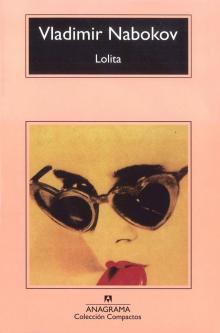 Lolita
Lolita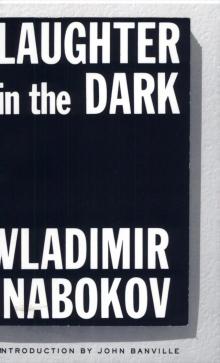 Laughter in the Dark
Laughter in the Dark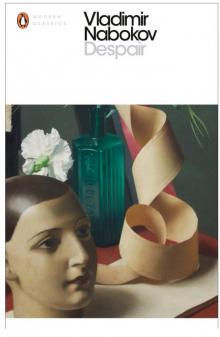 Despair
Despair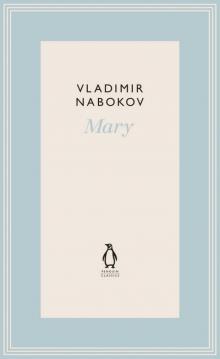 Mary
Mary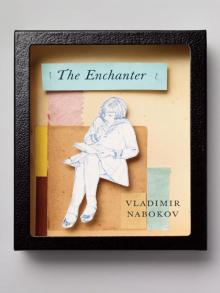 The Enchanter
The Enchanter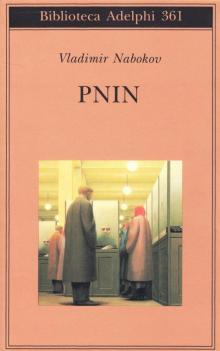 Pnin
Pnin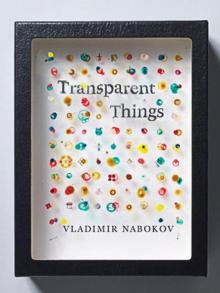 Transparent Things
Transparent Things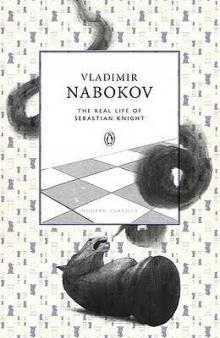 The Real Life of Sebastian Knight
The Real Life of Sebastian Knight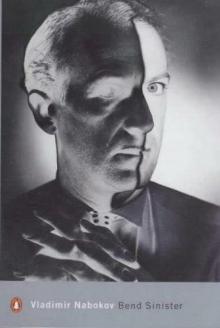 Bend Sinister
Bend Sinister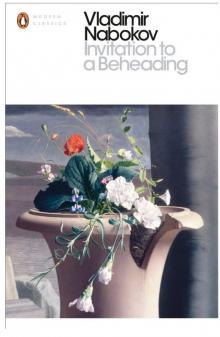 Invitation to a Beheading
Invitation to a Beheading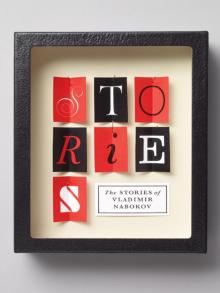 The Stories of Vladimir Nabokov
The Stories of Vladimir Nabokov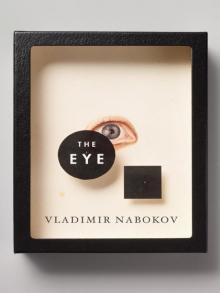 The Eye
The Eye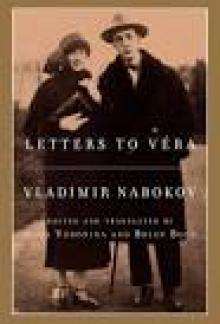 Letters to Véra
Letters to Véra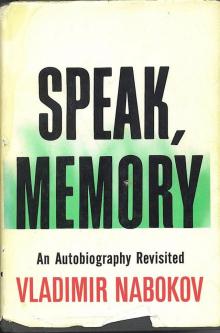 Speak, Memory
Speak, Memory The Gift
The Gift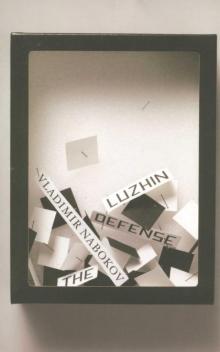 The Luzhin Defense
The Luzhin Defense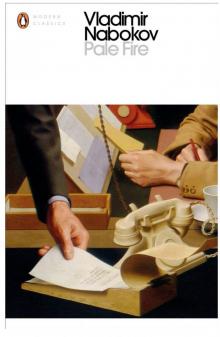 Pale Fire
Pale Fire Glory
Glory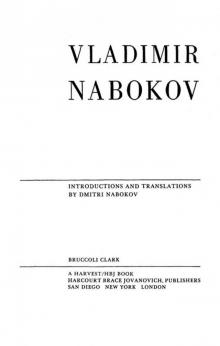 Man From the USSR & Other Plays
Man From the USSR & Other Plays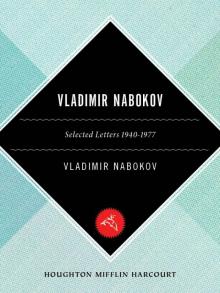 Vladimir Nabokov: Selected Letters 1940-1977
Vladimir Nabokov: Selected Letters 1940-1977 Strong opinions
Strong opinions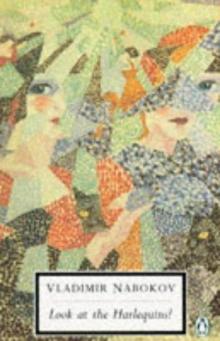 Look at the Harlequins!
Look at the Harlequins!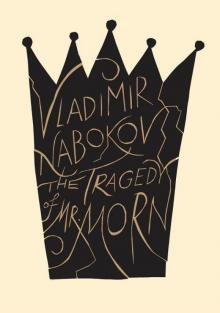 The Tragedy of Mister Morn
The Tragedy of Mister Morn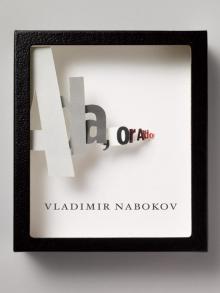 Ada, or Ardor
Ada, or Ardor Lectures on Russian literature
Lectures on Russian literature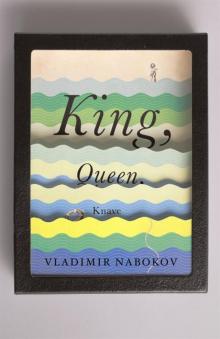 King, Queen, Knave
King, Queen, Knave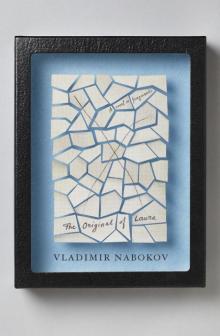 The Original of Laura
The Original of Laura